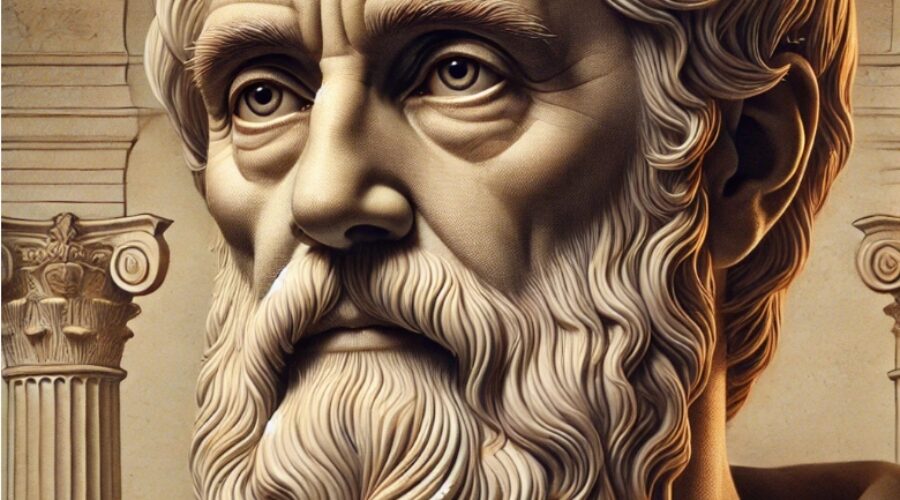Who Was Hippocrates? The Father of Modern Medicine
Who Was Hippocrates? The Father of Modern Medicine
When discussing the foundations of modern medicine, one name stands out above all others: Hippocrates. Known as the “Father of Medicine,” Hippocrates revolutionized the way we understand health and disease. Born on the Greek island of Kos around 460 BCE, his approach to medicine emphasized careful observation, diagnosis, and ethical practice, marking a departure from superstitious or mystical explanations of illness. His teachings, methods, and ethical standards continue to shape the field of medicine today.
The Early Life of Hippocrates
Hippocrates was born into a family of physicians on the island of Kos, a prominent center for learning and culture in ancient Greece. His early life was likely filled with a comprehensive education in the sciences, arts, and medicine of the time. His family lineage, believed to trace back to Asclepius, the Greek god of healing, might have influenced his passion and dedication to medicine.
The Hippocratic Approach to Medicine
Hippocrates is credited with establishing medicine as a profession distinct from religion and philosophy. His groundbreaking approach centered on observing patients and basing diagnoses and treatments on natural causes rather than attributing illnesses to supernatural forces. This methodology led to the development of the Hippocratic Corpus, a collection of medical texts that cover various topics, from surgery and anatomy to diet and lifestyle.
The Hippocratic Corpus serves as a foundational reference for practicing physicians and includes some of the earliest documented medical theories and practices. Hippocrates’ belief that diseases had natural causes set a precedent for scientific inquiry and evidence-based practice in medicine.
The Legacy of the Hippocratic Oath
One of Hippocrates’ most enduring contributions to medicine is the Hippocratic Oath. This ethical code established a set of principles for physicians, emphasizing patient confidentiality, non-maleficence (doing no harm), and ethical standards in medical practice. While the original oath has evolved, its core values still resonate with the modern medical community, reminding doctors of their moral obligations to patients.
Today, many medical graduates worldwide recite a version of the Hippocratic Oath, reaffirming their commitment to ethical patient care. This oath remains a symbol of Hippocrates’ lasting influence on the medical field and underscores his dedication to patient well-being.
Key Contributions of Hippocrates
- Clinical Observation: Hippocrates advocated for detailed observation of patients, which included documenting symptoms and progression over time. This practice laid the foundation for clinical diagnosis and personalized patient care.
- The Theory of Humors: Although outdated today, Hippocrates proposed the theory that the human body contains four humors: blood, phlegm, yellow bile, and black bile. He believed that an imbalance in these humors caused disease. This concept, while eventually disproven, influenced medical thinking for centuries and underscored the importance of balance in health.
- Patient-Centered Approach: Hippocrates emphasized the importance of empathy, compassion, and understanding in patient care. This holistic perspective remains relevant, highlighting the need to treat patients as individuals, not merely as cases.
The Hippocrates Tree and His Connection to Kos
The legendary Hippocrates Plane Tree on the island of Kos is said to be where Hippocrates taught his students. This massive tree, over 2,000 years old, stands as a symbol of learning, wisdom, and the enduring legacy of Hippocrates. Visitors to Kos can still view this historic landmark and experience the reverence for Hippocrates’ contributions to medicine.
Why Hippocrates Matters Today
The life and teachings of Hippocrates continue to inspire physicians, scholars, and health professionals worldwide. His approach to medicine based on careful observation, natural causes, and ethical principles laid the groundwork for the medical practices we rely on today. His dedication to ethical standards, particularly in patient care and confidentiality, set a benchmark for professionalism in medicine.
As we advance in medical science, the legacy of Hippocrates serves as a reminder of the importance of compassion, ethical integrity, and evidence-based practice in healthcare. Through his work, Hippocrates transformed medicine from a mystical art into a science, forever changing how we approach healing and wellness.
Conclusion
Hippocrates’ contributions to medicine have left an indelible mark on human history. From establishing the Hippocratic Oath to advancing clinical practices, his teachings remain relevant in modern medicine. His holistic, ethical approach continues to influence physicians today, ensuring that the legacy of the “Father of Medicine” lives on in every hospital, clinic, and medical school around the world.



